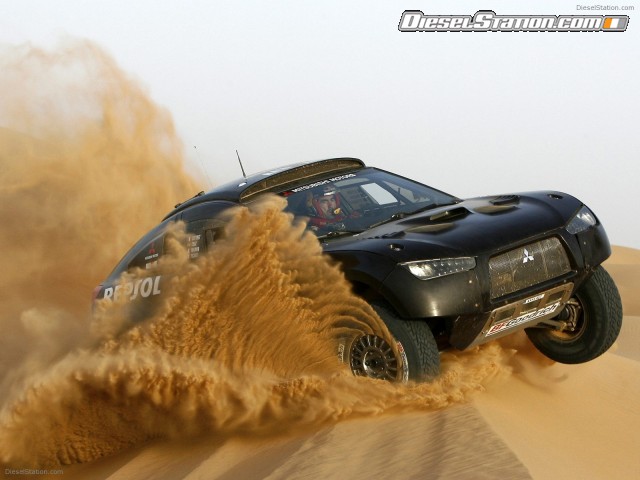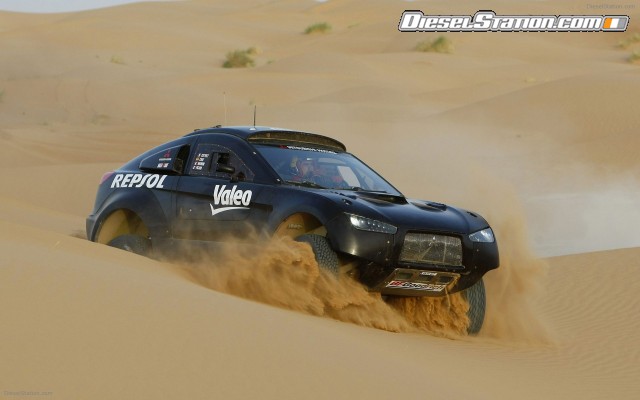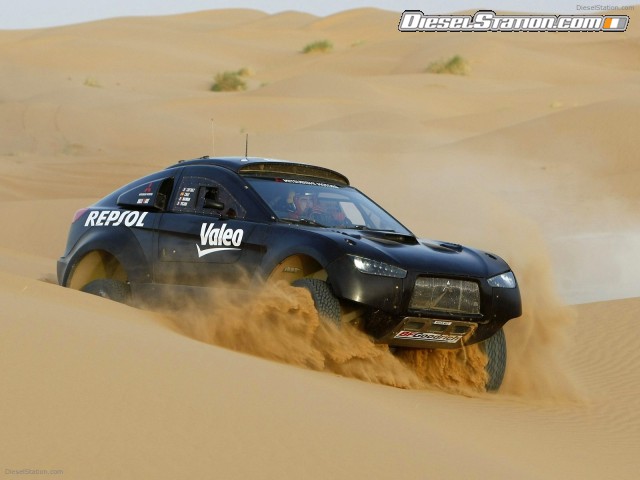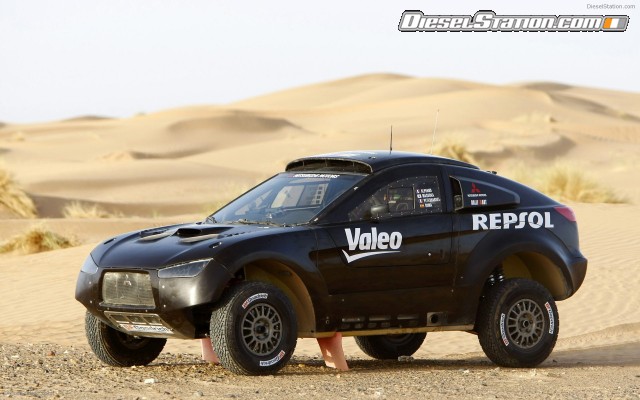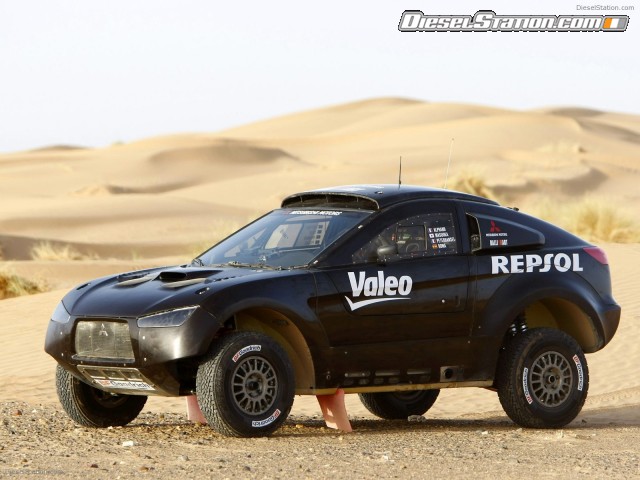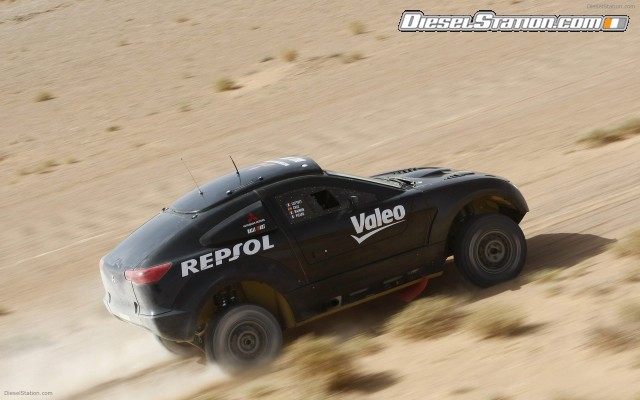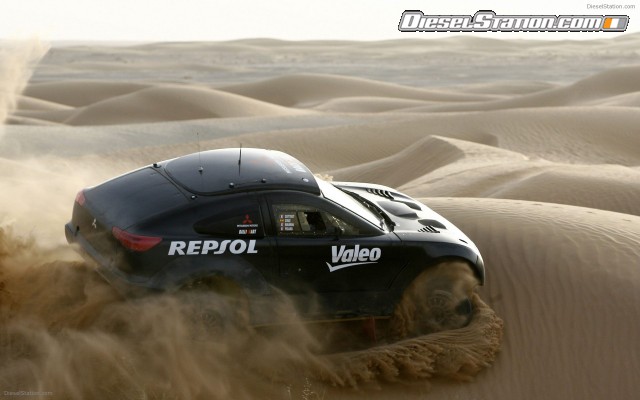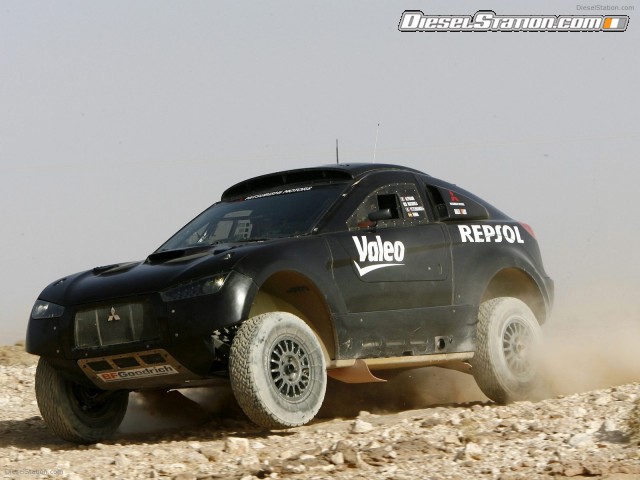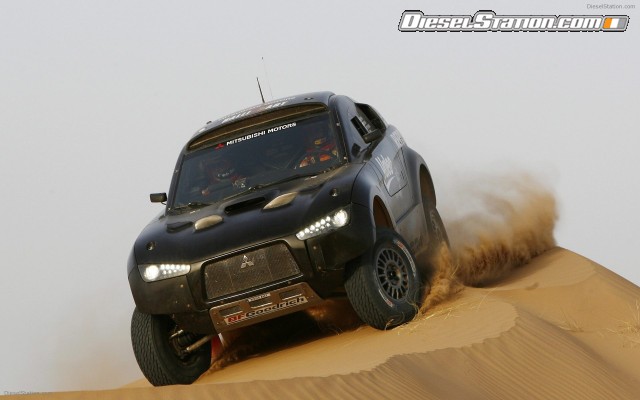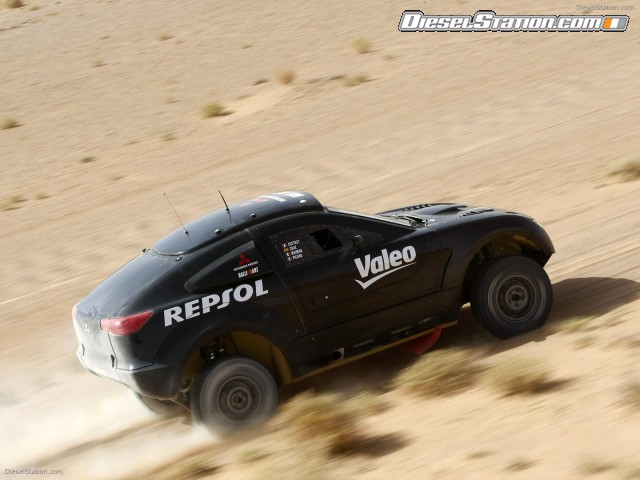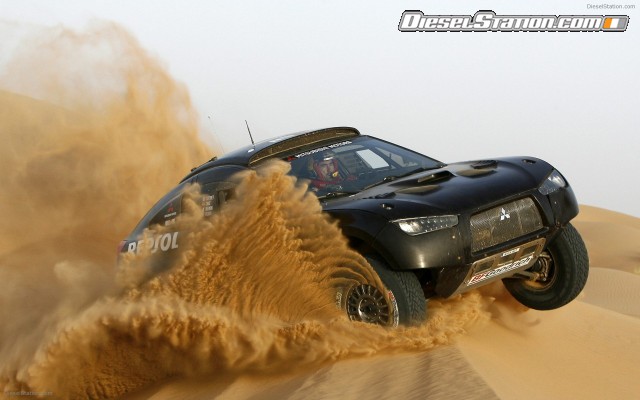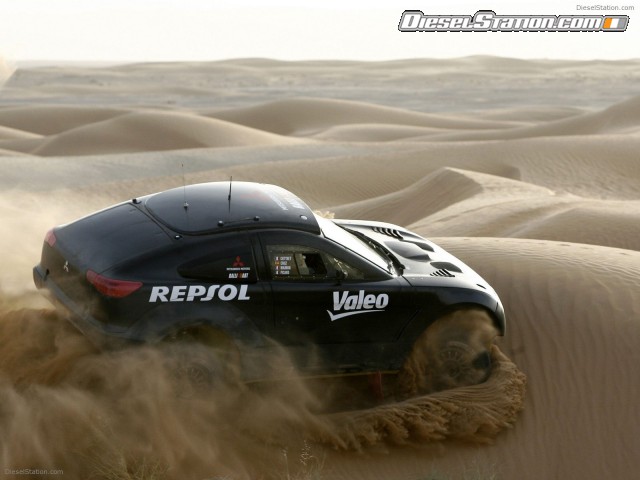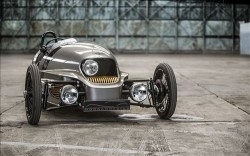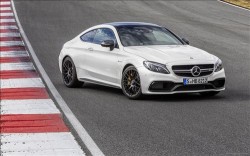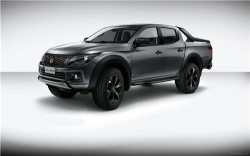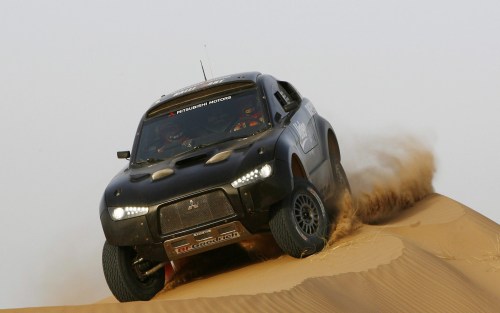Team Repsol Mitsubishi Ralliart is also furthering the development of the new "Racing Lancer" with the clear objective of winning the Dakar in 2009 Dakar Rally. As officially revealed, the team's latest cross-country rally car will be powered by a new turbocharged diesel engine which has already been put through its paces in a specific version of the Pajero/Montero Evolution on the following races: the Central Europe Rally (the first event of the newly-created Dakar Series), the Rali Transiberico (second round of FIA Cross-Country Rally World Cup) and the Baja Espana (round three of the FIA International Cup for Cross-Country Bajas). Check out more details after the jump.
Mitsubishi Motors Corporation (MMC) and its motorsport unit MMSP have developed a new cross-country rally car, the turbodiesel "Racing Lancer" which will be entered Baja Portalegre / Portugal.
The team's 2008 calendar also features selected rounds of the inaugural Dakar Series, the FIA Cross-Country Rally World Cup and the FIA international Cup for Cross-Country Bajas with the tried and tested Pajero/Montero Evolution.
In parallel to its competition activities, Team Repsol Mitsubishi Ralliart is also furthering the development of the new "Racing Lancer" with the clear objective of winning the Dakar in 2009.
As officially revealed, the team's latest cross-country rally car will be powered by a new turbocharged diesel engine which has already been put through its paces in a specific version of the Pajero/Montero Evolution on the following races: the Central Europe Rally (the first event of the newly-created Dakar Series), the Rali Transiberico (second round of FIA Cross-Country Rally World Cup) and the Baja Espana (round three of the FIA International Cup for Cross-Country Bajas).
Competing at rally speeds against the sport's leading teams has enabled the team to gather a vast amount of valuable data which could not have been obtained through testing alone. Hiroshi Masuoka (Japan) has competed twice with the turbocharged Pajero/Montero Evolution and is typically enthusiastic about the newcomer's potential: "The diesel version is overwhelmingly easy to drive thanks to its tremendous torque which is available over an even broader rev-band," says Masuoka. "It outperforms the petrol-powered car in terms of controllability over challenging terrain, as well as when accelerating out of corners and along high-speed straights. With the right set-up it would be comfortably faster."
Joan 'Nani' Roma (Spain) drove a Pajero/Montero Evolution, with the new turbodiesel grafted into it, on the Rali Transiberico. He reported that he had to adapt his driving style to the new engine's torque characteristics. Roma succeeded in posting three fastest stage times on the Portuguese event and actually led at one point, speaking volumes for the potential of the new engine.
This experimental car covered more than 8,000km in testing and competition, and the engineers in charge of the program have profited from this opportunity to develop a new suspension geometry designed to cope with the different weight distribution and torque characteristics associated with the new turbocharged diesel engine. They have also worked on a new engine compartment layout which is aimed at ensuring better cooling for the engine and auxiliary components. Technical improvements to the turbocharger have produced improved response at low revs, as well as more power at high engine speeds, while reliability has also been enhanced.
The "Racing Lancer" took part in two one-week test sessions in Spain and Morocco towards the end of June following its unveiling earlier in the month. With the basic performance package now confirmed and initial teething problems cured, the team is taking advantage of the considerable experience obtained with the Pajero/Montero Evolution to accelerate the new vehicle's development.
Continuing the build-up to the 2009 Dakar, the team has entered three petrol versions of the Pajero/Montero Evolution for Portugal's PAX Rally, the second event of the newly-created Dakar Series (Tuesday September 9 - Sunday September 14). The three cars will be driven by Stéphane Peterhansel (France), Luc Alphand (France), and Joan "Nani" Roma (Spain). The outing will enable the team to carry out work on the suspension and tires which will be carried over to the Racing Lancer.
The Racing Lancer itself will undergo further testing in Morocco between the end of August and the beginning of September, as well as over the latter part of October. Each test will last approximately two weeks and the car will cover some 4,000km each time. Following its extensive development program, the Racing Lancer will make its official debut on the Baja Portalegre / Portugal, round six of the 2008 FIA Cross-Country Rally World Cup (Thursday October 30 - Sunday November 2). The car will be in the hands of Stéphane Peterhansel, the Dakar's most successful competitor with a total of nine outright wins - on two and four wheels - under his belt.




